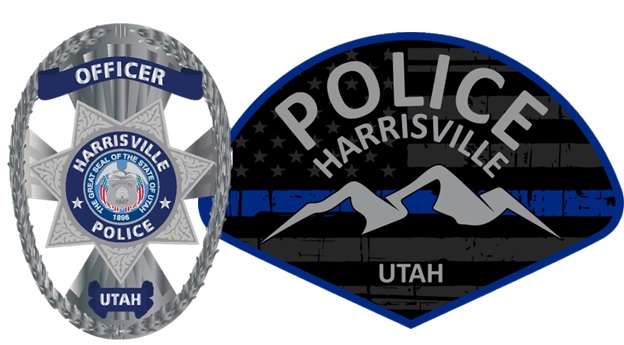The victim advocate program plays a crucial role in a city by providing support, guidance, and resources to individuals who have experienced crime or trauma. They help victims navigate the complex legal system, ensuring they understand their rights and options. Victim advocates also offer emotional support and connect individuals to necessary services, such as counseling and financial assistance.
Linda Quispe, Victim Advocate
Office Hours: Monday through Thursday 9 a.m. -2 p.m.
Victims have a right to:
- Be informed as to the level of protection from intimidation, free from harassment, harm and abuse available to them throughout the criminal justice process.
- Be informed and assisted as to their role in the criminal justice process.
- Have a clear explanation regarding relevant legal proceedings.
- Have a secure waiting area that does not require them to be in close proximity to defendant or the family or friends of defendant.
- Seek restitution and reparations.
- Have any personal property returned to the victim when the court or prosecution no longer needed.
- Reasonable employer intercession services to minimize employees’ loss of pay and other benefits resulting from their participation in the criminal justice process..
- Victims have the right to object to a petition for expungement.
- Should have a speedy disposition of the entire criminal justice process.
- Timely notice of judicial proceedings they are to attend and timely notice of cancellations.
What Is Abuse?
Abuse is when a person:
- Commits an act of violence or physical harm, or threatens to do so, against another.
- Forces another to engage in sex or sexual acts against his/her will. (That is rape.)
- Intends to frighten or harass another through means such as speech, written letters, or implied threats.
- Restrains or prevents another from seeking help by telephone or any other means. Stalks another by repeatedly maintaining visual or physical proximity and/or conveying verbal, written, or implied threats.
People in abusive situations often feel trapped, humiliated, and helpless. Some feel bound by love or loyalty. Some feel shame and fear, or that they are protecting their families and others by hiding behind a veil of secrecy.
Abuse knows no age, ethnic, racial, or religious barriers. Violence does not go away by itself, and, unless the victim seeks intervention, domestic violence tends to increase in frequency and severity over time.
A victim cannot change an abuser. Domestic violence is a learned behavior. Victims are not at fault for an abuser’s actions. Disagreements and arguments, even heated ones, are part of a normal relationship. Physical, emotional, and other forms of abuse are not.
Cycle of abuse:
- Tension Building: A minor conflict, lasting a few hours to months, causes tension to build. During this period, there may be the feeling of walking on eggshells.
- Violent Episode: The tension explodes into an emotionally and/or physically abusive incident. Most often, the victim of the abuse blames himself/herself, or the abuser blames the victim, for the incident.
- Honeymoon Period: The abuser apologizes to the victim and expresses remorse, often buying gifts and promising to change This minimizes the seriousness of the incident, and tension starts to build again.
What To Do If You’re In An Abusive Relationship
Take the First Step:
Tell someone – a family member, a friend, a co-worker, the police, an abuse hotline worker, etc. – about the abuse.
Call the Police:
Call 911 when the first incident of domestic violence occurs. Physical abuse and sexual abuse are crimes, even if the victim lives with the abuser.
Create a Plan:
Plan a safe haven to go to in the event a domestic situation gets out of control. Keep a bag packed with clothes, toys, and other essentials. Include an extra set of keys in the car or at a friend or neighbor’s house. Keep identification, prescriptions, credit cards, and bank account information in a safe and convenient location.
Get Help:
There are services available to help victims make life changes and obtain peace and safety. There are many shelters and support groups, there are protective orders to prohibit the abuser from contacting the victim, and in some cases, there may be financial assistance available.
Victims have options if they do not want to leave their abusers. Safety plans and counseling services are available for anyone wanting the chance to work on a relationship.
A victim advocate’s job is not to break up relationships; it is to support victims by providing education, information, resources and encouragement, and to help them identify their options. Victims do not have to live in fear.
Protective Orders:
Protective orders are given to victims, at no charge, to prevent an abuser from contacting, threatening, or approaching the victim at home, in the workplace, or anywhere the court deems necessary, to protect the victim, the victim’s family, or others living in the victim’s home.
Protective orders are issued by:
Second District Courthouse
2525 Grant Avenue
Ogden, UT 84401
Phone: (801) 395-1079
Additional Help for Victims
GENERAL INFOMATION
Information and Referral Center
SHELTERS
Lantern House
Ogden Rescue Mission, Inc.
COUNSELING SERVICES
Weber Human Services
Family Counseling Service of Northern UT
OTHER RESOURCES
Emergency
Non-Emergency Dispatch
Childrens Justice Center
Division of Child & Family (DCFS)
Adult Protective Services (APS)
Family Support Center of Ogden
YCC (Your Community Connection)
UOVC (Utah Office for Victims of Crime)
